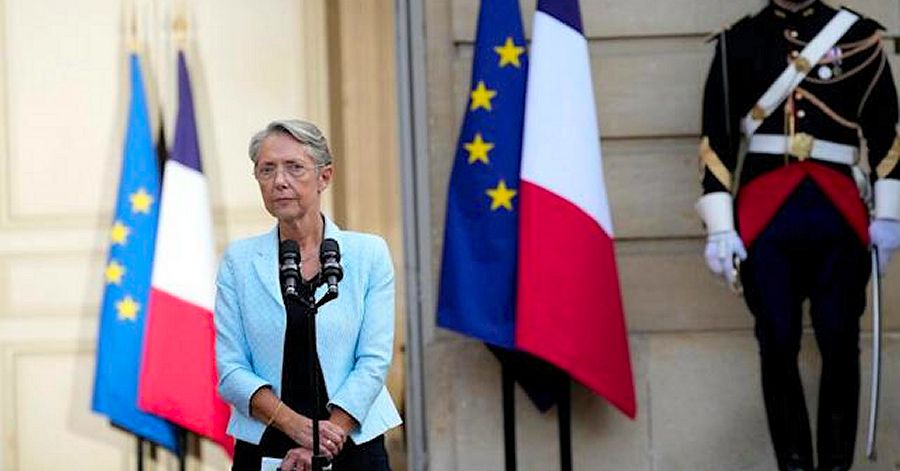THE BORNE GOVERNMENT OR THE CALL OF THE FOOT ON THE MELANCHONIST LEFT |
|
Admittedly, the appointments to the Quai d'Orsay of Catherine Colonna and to Culture of Rima Abdul Malak could be a novelty, but in fact they are nothing extraordinary: the former, a seasoned diplomat, has already been a minister twice under Jacques Chirac and the second was until then the cultural adviser to Emmanuel Macron. In addition, the vast majority of the most important positions have been entrusted to ministers already in place or to experienced politicians. Indeed, to carry out the ecological planning, the tenant of Matignon has surrounded herself with two faces known to the Castex government. Amélie de Montchalin – ex-Public Service – who will be in charge of Ecological Transition and Territorial Cohesion and Agnès Pannier-Runacher (ex-Industry) who will lead Energy Transition. As for the other sovereign ministries, except for Foreign Affairs, therefore, there again, Elisabeth Borne trusted the “elders” of the last five-year term. Thus, Bruno Le Maire was reappointed at the head of Bercy as Minister of the Economy, Finance and Industrial and Digital Sovereignty. The one who put in place “whatever it costs” at the height of the pandemic, then the recovery plan and who had the support of the bosses and the support of Brussels confirms his key role in the macronie. He is now number 2 in the government. In number 3, another essential of the last quinquennium the former Sarkozyist Gérald Darmanin remains indeed inside. Damien Abad, the former boss of the LR deputies in the Assembly, is the latest war prize. The deputy for Ain inherits the Ministry of Solidarity, autonomy and people with disabilities. Yet given as a starting point, Éric Dupond-Moretti also retains his functions in Justice, despite his indictment. Finally, Sébastien Lecornu, the former overseas minister, waspromoted to the Armies, in place of Florence Parly. In addition, Olivier Véran left Health to Brigitte Bourguignon (former Secretary of State in charge of autonomy) and took over the Ministry of Relations with Parliament. As for Gabriel Attal, he was appointed to the Public Accounts. And it is Olivia Grégoire, (former Secretary of State for the Social and Solidarity Economy), who replaces him as government spokesperson. Close to Emmanuel Macron, Clément Beaune remains in Europe. To the left of Mélanchon This new government must also be read through its political balances. Elisabeth Borne, through her career, must mark a leftward inflection. The Modem Marc Fesneau, the former Minister of Relations with Parliament, goes to Agriculture. Olivier Dussopt, the boss of Territories of Progress, the left wing of Macronie, is appointed Minister of Labor. He was previously in charge of the Budget. As for Franck Riester, the president of Agir, he remains in Foreign Trade. Christophe Béchu, the mayor of Angers and number 2 of Horizons - the party of Édouard Philippe -, has been appointed minister delegate in charge of local authorities. Places also go to first-day walkers. Party boss Stanislas Guerini has been appointed Minister of Transformation and Public Service, the President of the Law Commission in the Assembly, Yaël Braun-Pivet, has been promoted to Overseas France. Amélie Oudéa-Castera, the former patroness of the Tennis Federation, reaches the Ministry of Sports. The greatest turn to the left is embodied on the side of National Education in the replacement of Jean-Michel Blanquer, holding a strict secular line, by the historian Pap Ndiaye, "who is accused of to belong to "decolonial" thought, and to have declared a few years ago in an interview with Le Monde, that "there is indeed structural racism in France". For the right, this appointment is above all a signal to a fringe of Jean-Luc Mélenchon's electorate…”, analyzes Anita Hausser, journalist, in her editorial Electoral cynicism and deconstruction in government at Atlantico. |
|
| Garett Skyport for DayNewsWorld | |
 |
|




